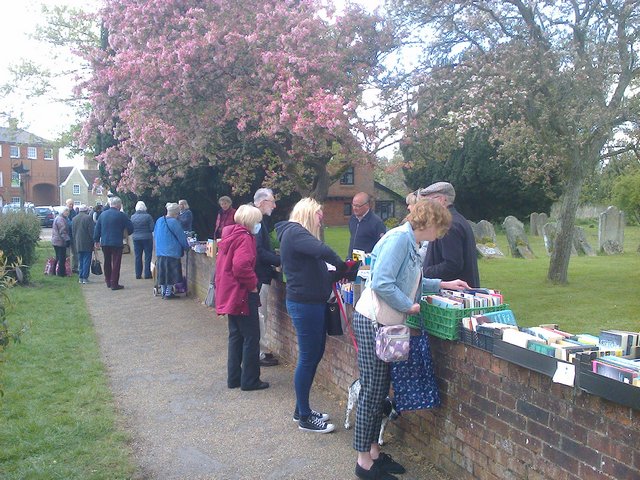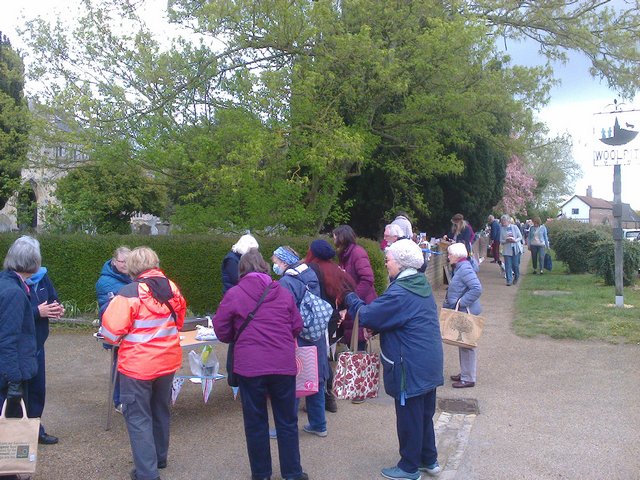Both my tablet and my mobile phone are Apple products and they have a very useful feature, which is ‘find my device’.
When I mislay one or the other I can activate the app and it immediately gives me a rough location for the missing device – enough of a guide for me to know that I’ve left my ipad in someone’s house or my phone in the car. It saves a lot of fruitless searching or, at least, directs my search in the right places.
Perhaps it is just as well these apps weren’t around in Jesus’ day or we might not have the three wonderful parables of searching for the lost that come in chapter 15 of Luke’s gospel. Jesus told three stories of loss and recovery which have become some of our favourite parables. The first two, beloved of Sunday School teachers in the past and of any of us work with children now, used simple, everyday situations – a lost sheep and a lost coin – to speak of God’s willingness to go to any lengths to find those who had strayed or were lost. At the time he told them Jesus’ audiences would have felt reassured and loved by the God who would not let them be lost forever. After all, those listening to the stories, the first time they were told, were Israelites who knew that they were God’s people. Although under Roman rule they may have felt that they were lost or abandoned Jesus’ stories reassured them that they were never out of God’s searching care and He would stop at nothing to bring them home safely.
However, the final story of the trilogy was not as easy or comfortable. We often call it the parable of the prodigal son, and focus mainly on the story of the younger son, but Jesus deliberately told a story of two sons – and two different ways of being lost. The parable also showed an image of God whose behaviour was shocking and forgiveness outrageous.
In asking for his inheritance early the younger son was telling his father he wished he was dead – and taking all his money and going far away from home he behaved as if his father had already died. For such behaviour the Jewish law in Leviticus said that a child could be stoned to death. But instead of exacting punishment or at least crossing the son’s name out of the family tree the father waited and watched for him. That was shocking enough to those listening to the story but then Jesus said that when the son appeared in the distance the father ran to him – losing all dignity, all respect. Jesus’ audience must have asked themselves, ‘what sort of God did Jesus believe in?’
The story continued to shock as Jesus told of the older brother – in every way someone who was righteous in the eyes of the law – who wasn’t the recipient of the father’s outrageous and lavish love. I suspect that many listening to the parable, and later thinking it over, were at the very least puzzled and perhaps some, particularly the Pharisees and rigorously law abiding people, alienated by Jesus – unable to comprehend the idea of a God who loved beyond bounds, forgave appalling sins yet didn’t appreciate those who worked hard for his favour. Yet there would have been some – at the fringes of the crowd – who took hope from the story. They were the tax collectors, the prostitutes, the shepherds and all those who had been forced to make lifestyle or work choices that left them outside the Jewish law and excluded from Jewish worship. For them this parable must have brought profound hope. God could and would never stop seeking them and would welcome them into His home with extravagant forgiveness and love.
To Luke these three parables were important. He wanted Gentiles to know that Jesus knew their inclusion into the kingdom of God was part of God’s plan. He wanted them to understand that God had sent his Son as the shepherd, the woman, to seek the lost, and that they were too would be the recipients of God’s overwhelming love and grace. No-one was or is outside God’s love – all they have to do is turn to him and accept him as their God and Lord.
What does that mean to us, today? First, that we are precious to God and He sent His son to show us how much. Also, that we don’t have to earn His love – all we have to do is turn to Him and He is there, holding out His arms to us. Finally, that although we may think that there are some people who, due to their actions, their life style or their race, could never be acceptable to God, it isn’t for us to judge. God knows the secrets of everyone’s hearts and He knows who has or may returned to Him.
After all, He is the father who watched for us to turn to Him and Jesus tells us He will never stop watching, reach out and running towards each of His children – whoever they are.



